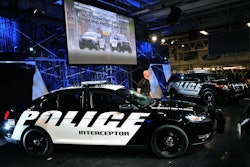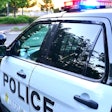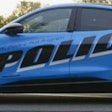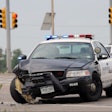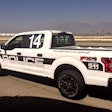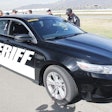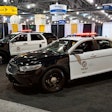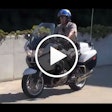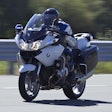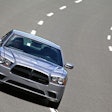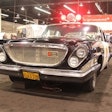I was speaking to a trooper the other day about the challenges of being a Field Training Officer (FTO). One of his questions was maintaining the recruit's attention while operating the police vehicle.
We looked inside his cruiser at the radio, the usual lights, siren console, mobile data terminal, radar unit, on-board camera system, throw in a CB radio, cell phone, GPS, and the stock AM/FM radio system.
It's stressful enough to operate these items, but far more difficult to operate a motor vehicle with these cockpit distractions. I often wonder when we will have mini-nuclear plants in the trunk to produce enough juice to run all of this stuff.
When I came on all we had was the radio and lights-and-siren controls, heck we did not even have an AM/FM radio in that old beat-up city unit. So, you listened to the police radio for that was all you had. I do recall my FTO days; I wouldn't allow the recruit to listen to AM/FM until they had mastered the police radio.
These are yesteryear techniques. I recall the coppers of yesteryear, who claimed that they could drive on a code run, drink coffee, smoke a cigarette and talk on the radio at the same time. This may be done once, but you can't do it all the time. Adding today's cockpit equipment, it's an urban myth now.
My greatest concern for the FTO and the recruit is that we are having more and more motor vehicle crashes and police officer deaths from crashes. I often wonder what part these new electronic additions contribute to this.
We have constant reminders to the civilian motoring public not to text and drive, talk on the cell phone and drive and don't even think about messing with the entertainment systems. For me, the mobile data terminal is the most distracting.
As an FTO you will have to 'ramp-in' the electronic responsibilities to a fledgling recruit; recall 'one step or gadget at a time.' As their skills improve in multitasking, then bring another device online. What I see as the biggest challenge is not driving like a civilian or standard defensive driving but operating in a patrol environment and having to drive defensively and then 'observe' for criminal activity or traffic infractions. These are skills that we develop and refine with time; they're not a 10-minute presentation.
You have departmental policy on operation of the police vehicle; know it and abide by it. Young officers today are 'gadgetheads' and the more we have the better or do we. For me, the least that you can get by with the better, or tune them down, mute them or learn to shut out the unnecessary.
Driving a nearly two-ton police vehicle in traffic requires your full attention. Then add speed, environmental conditions and other drivers; operating a cruiser now gets complicated.
One habit I recommend is for you to verbalize the traffic hazards as you drive to the call. Coming up on a traffic light that could turn red. Kid on bike on my left, could dart in front of me. Car in front has not noticed my lights and siren yet; prepare for evasive action for he will slam on the brakes.
Do this drill. If you can also say, I don't need to fiddle with Gadget A and Gadget B, even better. Keep your hands on the wheel and the car between the ditches. Your safe arrival is the goal.






